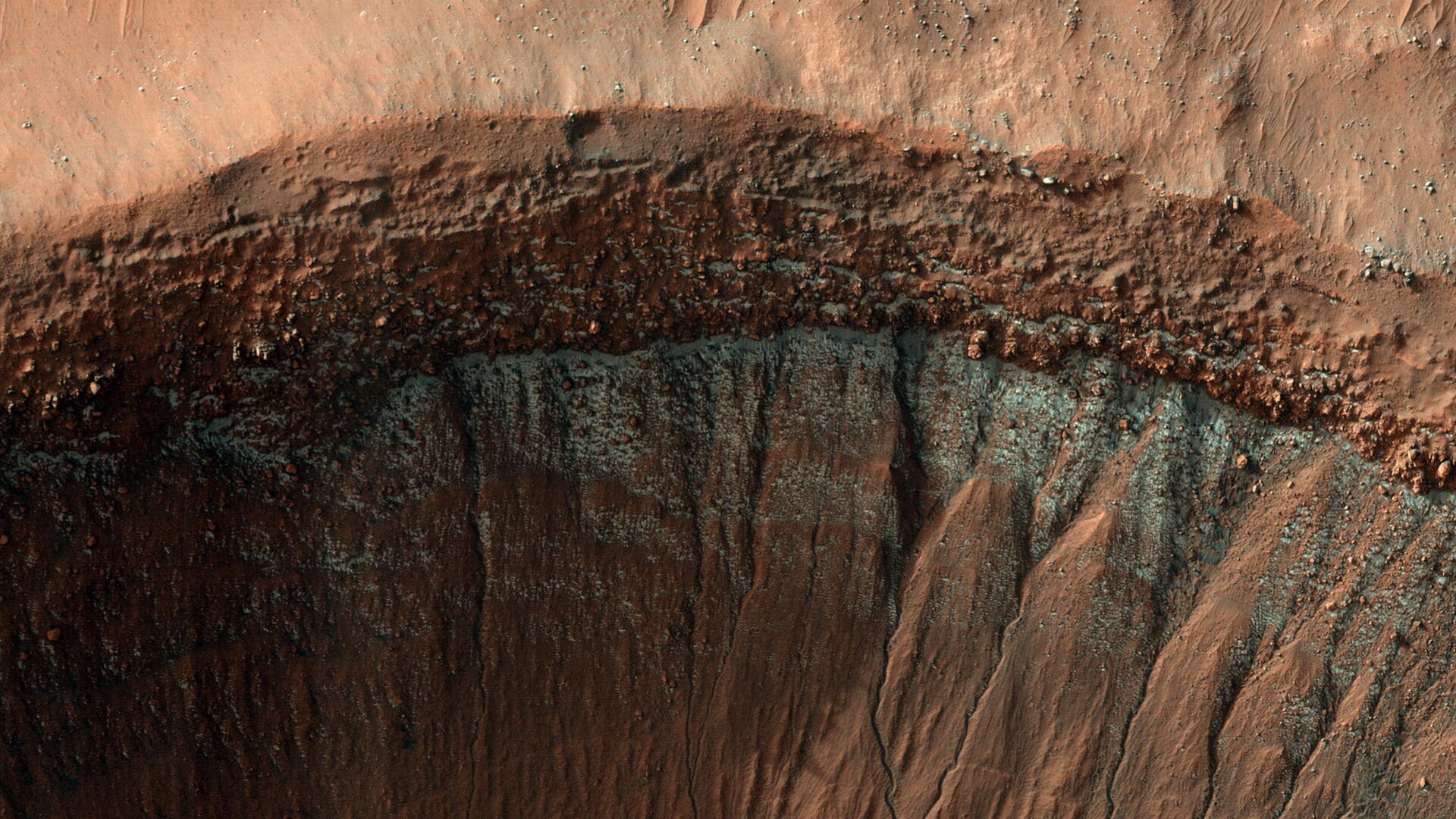https://sputnikglobe.com/20220527/why-did-mars-dry-out-new-study-gives-a-clue-1095819008.html
Why Did Mars Dry Out? New Study Gives a Clue
Why Did Mars Dry Out? New Study Gives a Clue
Sputnik International
Previously, most scientists assumed that the Red Planet had dried out because its atmosphere had lost carbon dioxide which helped to keep it warm. 27.05.2022, Sputnik International
2022-05-27T10:57+0000
2022-05-27T10:57+0000
2022-11-30T10:10+0000
space
water
mars
https://cdn1.img.sputnikglobe.com/img/07e6/04/0f/1094792715_0:90:2880:1710_1920x0_80_0_0_ad15370c44bf1fb119c3e55c3f7acb6d.jpg
A study recently published in the journal Science Advances offers a glimpse into the possible reasons Mars turned from a once-wet planet to the arid expanse it is now. According to the study, which was led by University of Chicago geophysical scientist Edwin Kite, Mars used to be seething in rivers, streams and lakes. Kite and his team have examined the tracks of Martian rivers that are still visible on the planet's landscape to see what they can reveal about the evolution of the planet's water and atmosphere. Previously, scientists assumed that the disappearance from the atmosphere of carbon dioxide - which helped to keep Mars warm - caused it to go from wet to dry. However, Kite and his colleagues analysed maps based on thousands of pictures of Mars taken by orbiting satellites, and pieced together a timeline of how river activity changed on the planet over billions of years. After that, they combined their findings with simulations of different climate conditions to see which matched best. The scientists came to the conclusion that the change in Mars' climate was caused by the loss of some other important ingredient that kept the planet warm enough for running water.According to the study's authors, there are several options. The team now plans to design a number of tests NASA's Perseverance rover can perform so that they can reap some more clues to help them solve the mystery of why Mars dried out.
mars
Sputnik International
feedback@sputniknews.com
+74956456601
MIA „Rossiya Segodnya“
2022
News
en_EN
Sputnik International
feedback@sputniknews.com
+74956456601
MIA „Rossiya Segodnya“
Sputnik International
feedback@sputniknews.com
+74956456601
MIA „Rossiya Segodnya“
space, water, mars
Why Did Mars Dry Out? New Study Gives a Clue
10:57 GMT 27.05.2022 (Updated: 10:10 GMT 30.11.2022) Previously, most scientists assumed that the Red Planet had dried out because its atmosphere had lost carbon dioxide which helped to keep it warm.
A study recently
published in the journal Science Advances offers a glimpse into the possible reasons Mars turned from a once-wet planet to the arid expanse it is now.
According to the study, which was led by University of Chicago geophysical scientist Edwin Kite, Mars used to be seething in rivers, streams and lakes. Kite and his team have examined the tracks of Martian rivers that are still visible on the planet's landscape to see what they can reveal about the evolution of the planet's water and atmosphere.
"People have put forward different ideas, but we're not sure what caused the climate to change so dramatically...We'd really like to understand, especially because it's the only planet we definitely know changed from habitable to uninhabitable," Kite said in a statement.
Previously, scientists assumed that the disappearance from the atmosphere of carbon dioxide - which helped to keep Mars warm - caused it to go from wet to dry. However, Kite and his colleagues analysed maps based on thousands of pictures of Mars taken by orbiting satellites, and pieced together a timeline of how river activity changed on the planet over billions of years. After that, they combined their findings with simulations of different climate conditions to see which matched best. The scientists came to the conclusion that the change in Mars' climate was caused by the loss of some other important ingredient that kept the planet warm enough for running water.
"We don't know what this factor is, but we need a lot of it to have existed to explain the results," Kite said.
According to the study's authors, there are several options. The team now plans to design a number of tests NASA's Perseverance rover can perform so that they can reap some more clues to help them solve the mystery of why Mars dried out.

